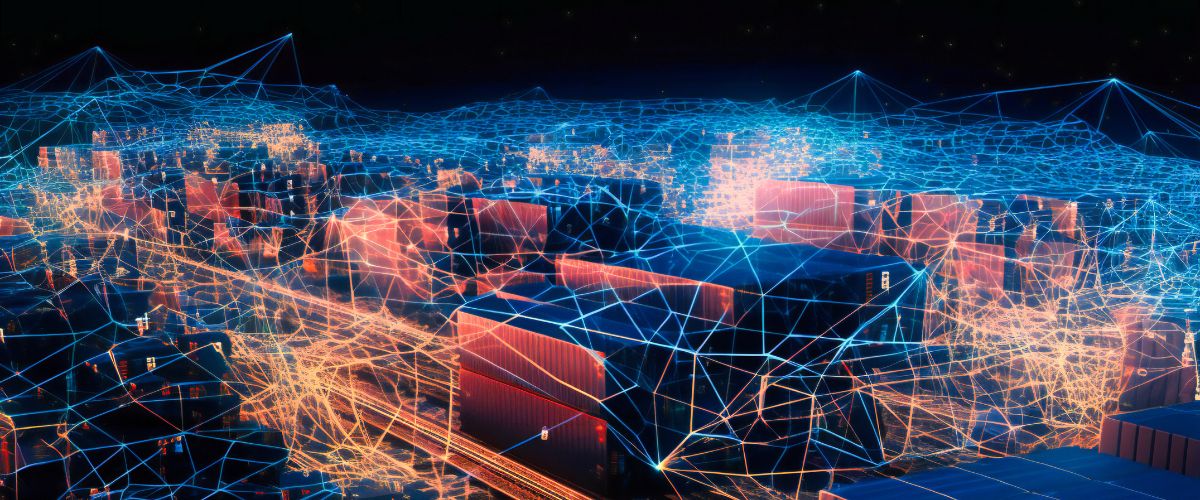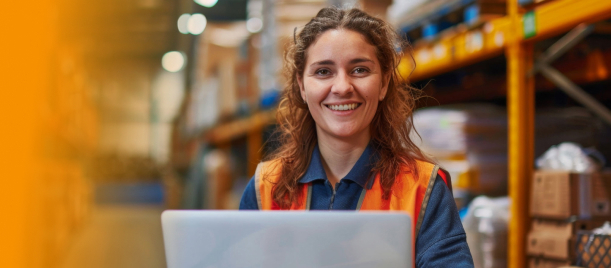The crucial role of data in Supply Chain and Logistics
The supply chain and logistics industry generates vast amounts of data, capturing every detail of a shipment, especially during customs clearance. This encompasses descriptions of the commodity, shipper and consignee’s financial and operational specifics, commercial and pricing information, and transportation details. It also includes data on components and their origins, as well as related information on insurance, drayage, and credit terms.
When structured and aggregated, this data can be a veritable treasure trove of information, with the potential to yield insights at the most granular level possible.
The sheer volume of data however also poses challenges related to collation, interpretation, and analysis.
Ensuring the storage and physical safety of these reams of paper is another challenge that needs to be addressed.
While the supply chain and logistics industry has made technological forays — like using blockchain to simplify customs clearance and trade documentation, these efforts are limited in scale.
In this context, emerging technologies such as Artificial Intelligence (AI) and Machine Learning (ML) attain significance in resolving enduring business challenges by harnessing synergies between various technologies.
Challenges typically faced by organizations, such as siloed information contributing to poor decision-making and difficulties in sharing milestones and relevant information across the supply chain, highlight the need for a more integrated technological approach.
AI and ML: Description and applicability in the Supply Chain and Logistics industry
Artificial Intelligence is a technology that enables computers to simulate human intelligence and problem-solving capabilities. Recent advances have increased exponentially its computing power and facilitated the fast processing of massive amounts of data that would be beyond the capacity of human employees.
AI is expected to impact global supply chains, profoundly permeating every aspect.
In particular, AI has been immensely useful in processing documents and streamlining paperwork through Optical Character Recognition (OCR) and Natural Language Processing (NLP), which combine to recognize and interpret contents from structured and unstructured documents and help systems understand text.
Machine Learning (ML) focuses on using data and algorithms to imitate how humans learn, thus paving the way for software to handle rote tasks with greater precision, and subsequently make predictions on new data.
Since the quality of ML output depends on the amount of data ingested, it is evident that the longer ML is used, the more data it ingests, bettering the quality of analyses and accuracy of predictions.
This is especially helpful in supply chain and customs clearance as ML’s ability to extract relevant data from trade documents improves with prolonged usage.
Benefits of leveraging AI and ML
We will explore the transformative advantages of combining these technologies in logistics processes, specifically focusing on customs clearance and the pivotal role of data.
Several conglomerates have incorporated AI and ML technologies in their daily supply chain planning and logistics operations, resulting in higher productivity and efficiency, which translates into superior customer experience. The competitive advantage thus created can be invaluable in a fiercely cutthroat competitive market.
Notable benefits of fusing these technologies include:
1. Enhanced efficiency in Customs Clearance
Harnessing the combined power of these technologies can elevate the efficiency of the customs clearance process. With the ability to swiftly process vast amounts of data across various document formats, routine tasks are automated, superior accuracy levels are attained, and customs clearance is expedited.
ML algorithms can learn from historical data, incorporate regulatory amendments, and optimize the overall customs clearance process.
2. Data-driven decision making
The logistics business involves collating and sharing data to facilitate the export process; however, the amount and complexity of data can be overwhelming for humans. AI and ML help overcome this challenge by analyzing data related to shipments, regulations, and historical customs clearance patterns, enabling supply chain managers to make strategic decisions faster, predict potential challenges earlier, proactively address issues in the customs clearance process, and ultimately optimize inventory management.
3. Improved accuracy and compliance
Precision and compliance with regulatory requirements are paramount in customs clearance and can be best achieved by leveraging AI and ML. These technologies digitize documentation and automate logistics workflows, thus helping detect discrepancies, flag potential issues, and reduce the risk of errors and, consequently, delays and penalties. The result is a more reliable and compliant customs clearance process.
4. Predictive Analytics for Supply Chain Optimisation
Sophisticated algorithms powering AI and ML tools provide predictive analytics, helping supply chain managers anticipate challenges and optimize supply chain processes. These systems analyze historical data to predict potential bottlenecks and recommend mitigative measures. This proactive approach minimizes disruptions and infuses reliability in supply chains.
5. Real-time Tracking and Visibility
Real-time visibility is fast becoming the norm in international transport, with logistics professionals considering this information crucial for their upstream and downstream planning. AI and ML can monitor data from many sources to provide accurate and up-to-date information on the status of shipments during customs clearance. This transparency allows stakeholders to track progress, address issues promptly, and enhance overall supply chain visibility.
Growing usage of AI and ML for Customs Clearance and other Logistics activities
The supply chain and logistics industry witnessed a surge in the deployment of logtech
solutions post the COVID-19 pandemic, with reputed companies such as Walmart, Siemens, Unilever, and Tyson Foods using AI to aid their procurement and logistics activities.
As the advantages of incorporating AI and ML in logistics processes, especially customs clearance, become apparent, the industry is rapidly embracing these technologies. The combination of AI and ML allows efficient, accurate, and quicker decision-making capabilities, offering a competitive edge in the global marketplace.
In today’s VUCA environment, it is imperative to embrace AI and ML to stay ahead of the competition. The future of customs clearance lies in the intelligent utilization of data through these transformative technologies, paving the way for a more streamlined and resilient logistics ecosystem.
KlearNow’s Data Engine platform: Unleashing the power of AI and ML
For corporations intending to garner benefits of AI and ML to streamline customs clearance, KlearNow offers Data Engine, an intelligent trade documentation platform that ingests unstructured documents and data, converts it into structured data, and prepares customs clearance and other documentation in the stipulated format.
The Data Engine has the ability to process and interpret documents in various formats and extract meaningful insights, helping improve staff productivity and saving time and money — with up to a 10x increase in operational efficiency.
Customers have testified to its efficacy, reporting that KlearNow’s logtech solutions have helped reduce the average time taken per shipment from 15 to 30 minutes to just a couple of minutes.
Learn more about Data Engine by clicking here.

